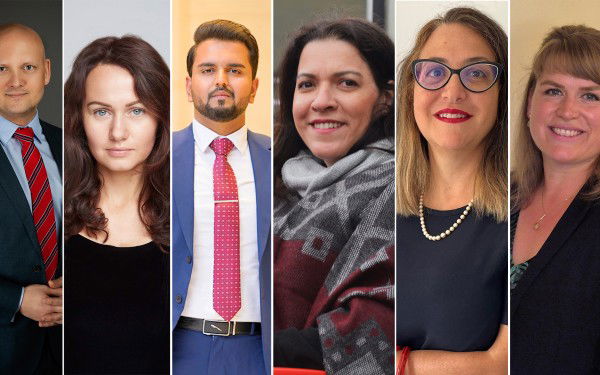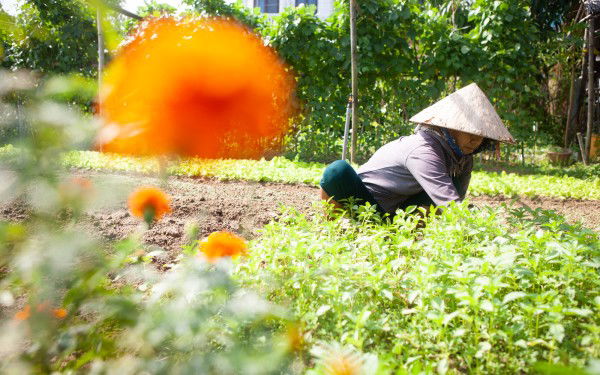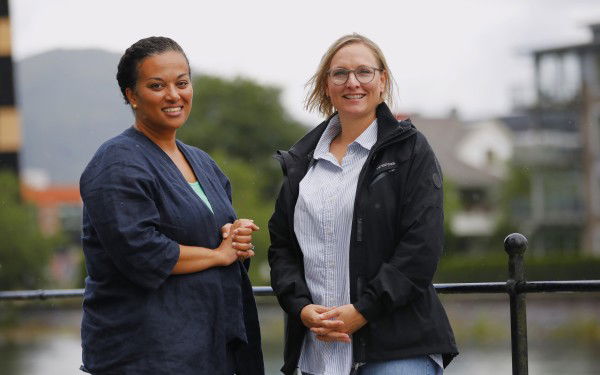Five projects will receive support from a new grant scheme
20. December 2024
Norec’s new grant scheme, Post-Exchange Initiative, has received overwhelming interest. Out of 145 applications, five projects have been selected. The total funding pool for the scheme is 200,000 Norwegian kroner/ 18,000 US Dollars.
“The response has been overwhelming. We had hoped for 100 applications, but the final count reached 145. This shows that the scheme is something people have been waiting for,” says Norec Network adviser, Tasle Torrissen Knapstad.
In August, Norec launched a new grant scheme, the Post-Exchange Initiative. The scheme allows former exchange participants in Norec programmes to apply for financial support to implement ideas inspired by their exchange experiences.
“Over 12,000 people have participated in exchanges through Norec since 1963. Many return home with ideas, passion and a strong desire to continue contributing to development—for themselves and their communities. However, they often lack financial resources. This is where the Post-Exchange Initiative comes in as a tool to help bring their plans to life,” says Knapstad.
Five projects receive support
Out of the 145 applications, five projects have been awarded funding.
The projects that will receive support are:
- Improving hygiene for adolescent girls
Five primary schools and a rehabilitation centre will teach girls aged 13 and older how to make reusable sanitary pads. This project aims to improve hygiene, provide a safer transition through puberty for young girls, and have long-term benefits. Reusable pads are also environmentally friendly and more sustainable.- Country: Malawi
- Grant: USD 4,000
- Providing farmers with new income opportunities through beekeeping and resilient crops
Kilimambogo Organic Growers empowers local farmers through training in sustainable farming, beekeeping, and herb cultivation. By equipping farmers with knowledge in sustainable agriculture, beekeeping, herb farming, and agro-ecotourism, the project aims to provide them with diverse income sources. Drought-resistant crops and pest- and disease-resistant plant varieties are a crucial part of the initiative.- Country: Kenya
- Grant: USD 4,643
- Ensuring early support for children with disabilities
In Iringa, Tanzania, young children with disabilities are often not identified early due to a lack of knowledge and training among both parents and key healthcare personnel. This prevents necessary support and access to basic rights like education. The project will provide training for healthcare and social workers and parents to identify disabilities earlier, ensuring greater access to support and services for a better start in life.- Country: Tanzania
- Grant: USD 2,151.60
- Creating a sports centre as a safe space for children and youth
Children and youth in vulnerable communities in Tanzania face challenges such as poverty, substance abuse, and a lack of safe recreational opportunities. Youth Peacemakers Tanzania is planning a multi-use sports centre in Lushoto to provide young people with a positive alternative. The centre will offer a safe environment for sports, life skills, and social interaction while promoting talent development and inclusion, especially for girls and children with special needs.- Country: Tanzania
- Grant: USD 4,559.67
- Empowering young single mothers for a sustainable future
In Ruhama Ntungamo District, young single mothers face challenges such as limited access to education, healthcare and economic opportunities, which in turn perpetuate cycles of poverty. This project aims to improve the lives of 100 single mothers by the end of 2025 through initiatives such as sustainable agriculture, health information, vocational training and increased community engagement. The project seeks to equip the women with skills and resources to become self-sufficient, start their own businesses and secure a sustainable future for themselves and their families.- Country: Uganda
- Grant: USD 5,000
A challenging selection process
The high number of applications made the selection process difficult.
“There were many strong applications and interesting projects. We had clear criteria for awarding funds and wanted to ensure geographic and thematic diversity,” says Norec program adviser, Dilanka Fernando.
Criteria for Application
To be eligible for support from the Post-Exchange Initiative, applicants had to meet the following criteria:
- Be a member of the Norec network.
- Have completed an exchange in 2023 or 2024.
- The project must be linked to the exchange in some way.
- Applicants must demonstrate a good understanding of the project topic.
- The project must be carried out in Norway or one of Norec’s partner countries.
- The project must align with one or more of the UN’s Sustainable Development Goals.
- The project must be cost-effective and address a genuine local need.
- Applicants must have an agreement with a partner organisation (funds cannot be disbursed to individuals).
Quick start
The selected projects will receive their funding shortly. The projects or activities must be carried out within the first six months after the grant is awarded, and recipients must submit a report detailing how the funds were used.
“This is a groundbreaking initiative for us. We’re excited to see how the recipients use the funds they’ve been granted. All the projects have great potential and could significantly impact the quality of life for the target groups involved,” says Knapstad.
It has not yet been decided if the Post-Exchange Initiative will continue next year.
“We will thoroughly evaluate the pilot project before making a decision,” says Knapstad.




